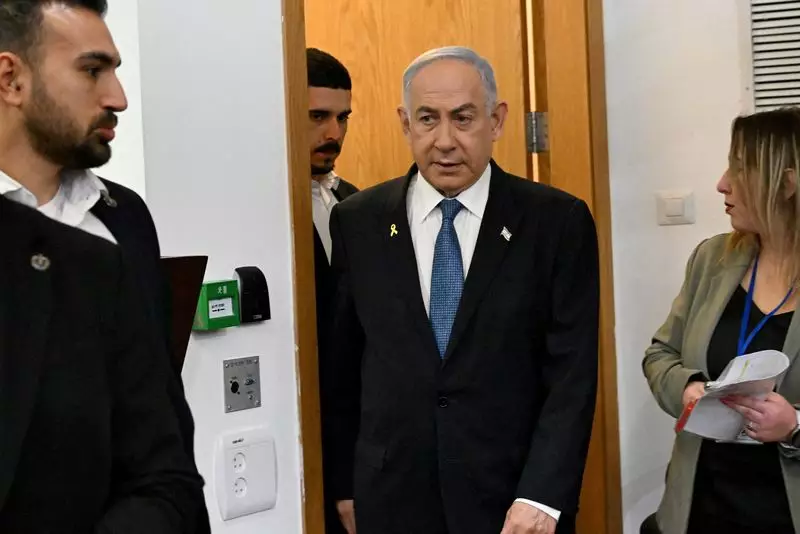In a striking display of political resolve, Israeli Prime Minister Benjamin Netanyahu rose from his hospital bed after undergoing prostate surgery. This act was not merely about personal recovery; it underscored the gravity of the situation he faces as he navigates the precarious waters of coalition politics. The coalition, described as the most hardline in Israel’s history, found itself at a crossroads as potential dissenters within key party ranks threatened to derail crucial budget legislation for 2025. Faced with the growing discontent among coalition partners, particularly from the far-right factions, Netanyahu’s call for unity was a necessary yet desperate move to maintain parliamentary control.
The Israeli Knesset has been a stage for intense power plays, especially with the recent budget which proposes a stringent wartime austerity package aimed at tax hikes and spending reductions. Netanyahu’s coalition, which narrowly passed the budget after considerable opposition, reflects the fissures within his government. The tension is palpable with figures like Itamar Ben Gvir, the far-right public security minister, pushing for increased police funding and resisting military enlistment legislation for ultra-Orthodox community members. Such demands threaten to unravel the delicate coalition dynamics, revealing the deep-seated ideological divides that characterize Israeli politics today.
Contextually, the urgency surrounding the 2025 budget extends beyond political maneuvering; it is intricately tied to the economic landscape of Israel. The aftermath of the October 7th attacks by Hamas militants launched a series of events that severely impacted the national economy. With growth at a standstill and inflation spiking, Israeli citizens are grappling with soaring living costs, further exacerbating dissatisfaction with the government. The proposed austerity measures might indicate an attempt to rebalance the fiscal situation, though they are laden with risks, especially if they alienate key voter blocs.
As Netanyahu pushes to stabilize his government, the coalition’s future remains uncertain. The narrowness of its majority in the Knesset signals that one misstep could prompt a catastrophic fallout. The coalition’s reliance on external support became more pronounced after the incorporation of opposition lawmaker Gideon Saar, aimed at strengthening Netanyahu’s position. However, with Saar recently appointed as foreign minister, the question arises: will this extension of loyalty be enough to counterbalance internal pressures?
What lies ahead hinges significantly on the legislative processes to come. The budget will undergo scrutiny in finance and other Knesset committees before reaching final approval, hinting at potential hurdles ahead. If Netanyahu fails to secure the budget by March 31, new elections could follow, adding another layer of complexity to an already tumultuous political scenario.
Netanyahu’s leadership is at a critical juncture, where the combination of economic woes and coalition tensions could define the trajectory of his administration. His fervent call for unity within a fractious coalition highlights both the strengths and weaknesses of his current political strategy. As the situation evolves, it remains to be seen whether he can maintain the delicate balance required to lead amidst such a volatile landscape. The interplay of political allegiance, economic pressures, and public sentiment will prove pivotal in the coming months, as Israel seeks stability against a backdrop of uncertainty.

